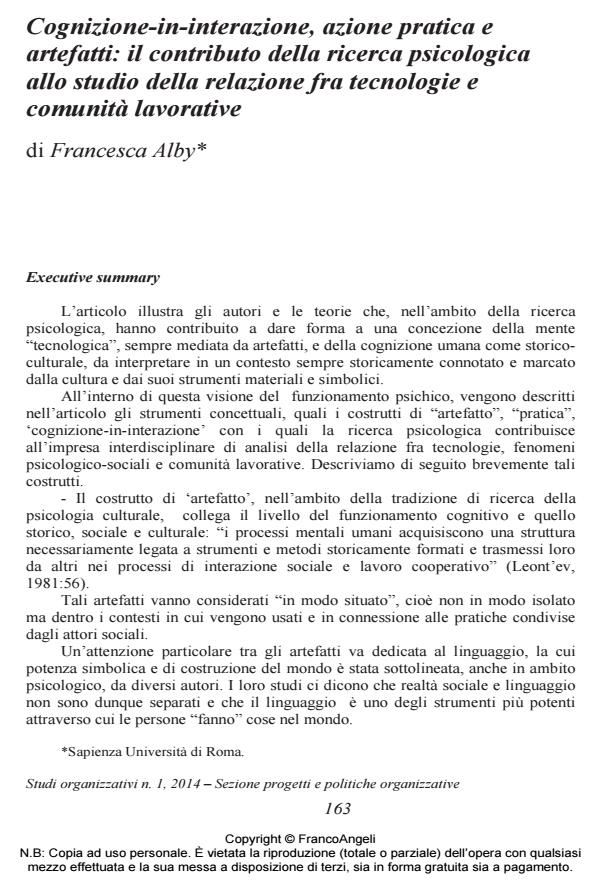Cognizione-in-interazione, azione pratica e artefatti: il contributo della ricerca psicologica allo studio della relazione fra tecnologie e comunità lavorative
Journal title STUDI ORGANIZZATIVI
Author/s Francesca Alby
Publishing Year 2014 Issue 2014/1
Language Italian Pages 15 P. 163-177 File size 68 KB
DOI 10.3280/SO2014-001008
DOI is like a bar code for intellectual property: to have more infomation
click here
Below, you can see the article first page
If you want to buy this article in PDF format, you can do it, following the instructions to buy download credits

FrancoAngeli is member of Publishers International Linking Association, Inc (PILA), a not-for-profit association which run the CrossRef service enabling links to and from online scholarly content.
The article describes the authors and theories that, in the domain of psychological research, helped to shape a conception of the mind as "technological", i.e. always mediated by artifacts, and of human cognition as culturally and historically situated, that is to be interpreted within a context always historically characterized and marked by the culture and its material and symbolic tools. Within this vision of psychological functioning, the article describes the conceptual tools, such as the constructs of "practice", "artifact", "knowledge-in-interaction", with which psychological research contributes to the interdisciplinary enterprise of analysing the relationship between technologies, socio-psychological phenomena and work communities.
Keywords: Technology, artifact, cultural psychology, work practices, cognition-ininteraction.
- Where does it come from? Collaborative emergence in creative work practices Laura Lucia Parolin, Carmen Pellegrinelli, in New Ideas in Psychology 100800/2020 pp.100800
DOI: 10.1016/j.newideapsych.2020.100800
Francesca Alby, Cognizione-in-interazione, azione pratica e artefatti: il contributo della ricerca psicologica allo studio della relazione fra tecnologie e comunità lavorative in "STUDI ORGANIZZATIVI " 1/2014, pp 163-177, DOI: 10.3280/SO2014-001008